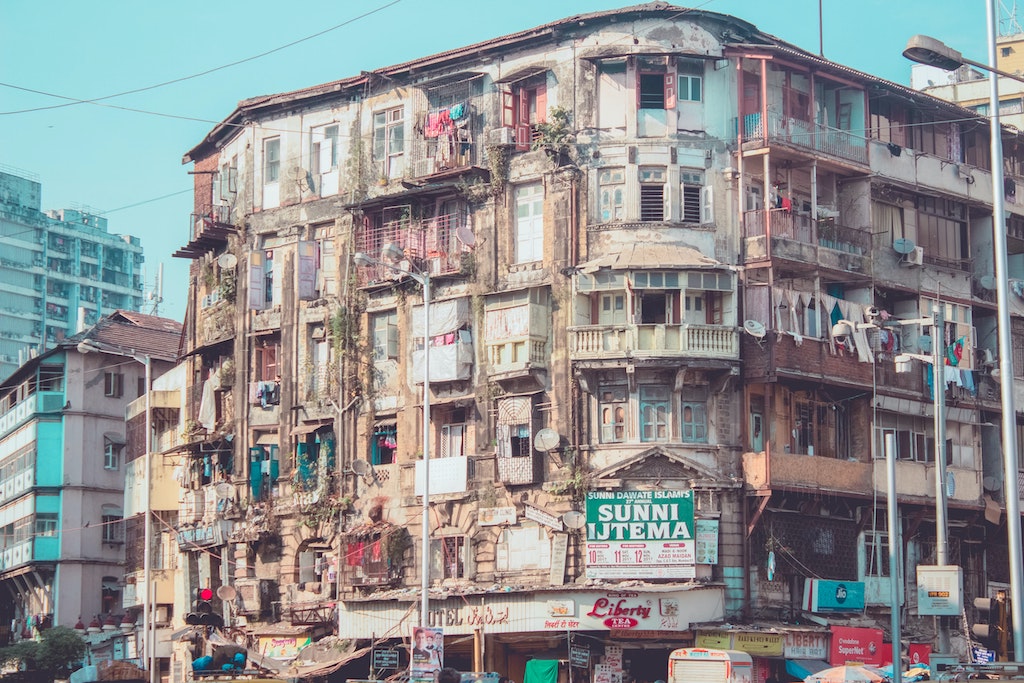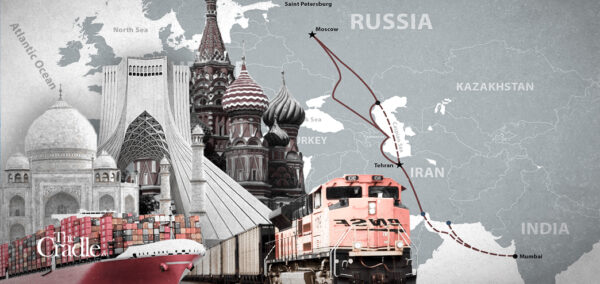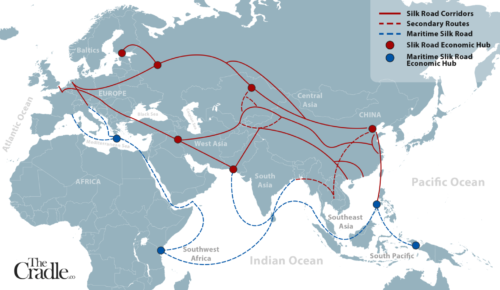This post was originally published on The Asian Age | Home.
-
Before the ceremony, the outgoing President and the President-elect will arrive in Parliament in a ceremonial procession
-
New York: The ShowFest is brining yet another grand Bollywood festival in New Jersey, United States (US) on September 3 wherein famed Indian musicians will headline the Live concert.
The Bollywood singers of the world of music including Yo Yo Honey Singh will demonstrate the magic of their voice at the New Jersey’s PNC Bank Art Center on September 3.
Atique Sheikh has been kind enough to bring the acclaimed Indian singers in the live concert under the banner of Showfest.
Indian rapper and pop star Yo Yo Honey Singh along with Harsh Deep Kaur, Richa Sharma, Raj Pandit, DJ Akbar Sami, Master Saleem, Sulaiman, Hommie Dilliwala and Alfaaz will perform at the Music Festival at New Jersey’s PNC Bank Art Center on September 3.
The music lovers can book seats with immediate effect to watch their live performance of the their favorite music stars from South Asia.
This post was originally published on VOSA.
-
Food security is at risk in the hills, with landslides, flash floods and soil erosion affecting agricultural land
This post was originally published on The Asian Age | Home.
-
The Shinde faction of the Shiv Sena had written to the Commission seeking allocation of the party’s ‘bow and arrow’ election symbol to it
This post was originally published on The Asian Age | Home.
-
The agency sleuths interrogated the minister for around 26 hours in connection with the scam
This post was originally published on The Asian Age | Home.
-
Opp. slammed the govt for the amendment to the Flag Code and destroying the livelihood of those who made the national flags from khadi
This post was originally published on The Asian Age | Home.
-
Murmu won by an overwhelming margin against Sinha after receiving over 64% valid votes in a day-long counting of ballots of MPs and MLAs
This post was originally published on The Asian Age | Home.
-
New York: Superstars of the Indian film industry, most prominently Sanjay Dutt, Arshad Warsi, Boman Irani, and others will perform live in the United States (US) and Canada from 19 to 28 August.
Sanjay Dutt, Arshad Warsi and Boman Irani along with many other Indian film Industry stars will perform in a live concert organized by Prria Haider Productions on August 27 at in Cure Insurance Arena New Jersey.
Silver screen stars Sanjay Dutt, Arshad Warsi Boman Irani, Shahnaz Gul, Aisha Koppiker, Manish Paul, Amit Mishra, Neeti Mohan and Mouni Roy, who are on tour to the US and Canada, will perform at the Cure Insurance Arena in New Jersey on August 27.
Indian stars will perform live concerts in Toronto on August 19th, San Jose on August 20th, Dallas on August 21st, Atlanta on August 26th, New Jersey on August 27th, and Washington on August 28th.
Those interested in these live concerts may book tickets with immediate effect.
This post was originally published on VOSA.
-
No longer just an ‘alternative route’ on a drawing board, the International North South Transportation Corridor (INSTC) is paying dividends in a time of global crisis. And Moscow, Tehran and New Delhi are now leading players in the Eurasian competition for transportation routes.
Tectonic shifts continue to rage through the world system with nation-states quickly recognizing that the “great game” as it has been played since the establishment of the Bretton Woods monetary system in the wake of the second World War, is over.
But empires never disappear without a fight, and the Anglo-American one is no exception, overplaying its hand, threatening and bluffing its way, right to the end.
End of an order
It seems no matter how many sanctions the west imposes on Russia, the victims most affected are western civilians. Indeed, the severity of this political blunder is such that the nations of the trans-Atlantic are heading towards the greatest self-induced food and energy crisis in history.
While the representatives of the “liberal rules-based international order” continue on their trajectory to crush all nations that refuse to play by those rules, a much saner paradigm has come to light in recent months that promises to transform the global order entirely.
The multipolar solution
Here we see the alternative security-financial order which has arisen in the form of the Greater Eurasian Partnership. As recently as 30 June at the 10th St Petersburg International Legal Forum, Russian President Vladimir Putin described this emerging new multipolar order as:
A multipolar system of international relations is now being formed. It is an irreversible process; it is happening before our eyes and is objective in nature. The position of Russia and many other countries is that this democratic, more just world order should be built on the basis of mutual respect and trust, and, of course, on the generally accepted principles of international law and the UN Charter.
Since the inevitable cancellation of western trade with Russia after the Ukraine conflict erupted in February, Putin has increasingly made clear that the strategic re-orientation of Moscow’s economic ties from east to west had to make a dramatically new emphasis on north to south and north to east relations not only for Russia’s survival, but for the survival of all Eurasia.
Among the top strategic focuses of this re-orientation is the long overdue International North South Transportation Corridor (INSTC).
On this game-changing mega-project, Putin said last month during the plenary session of the 25th St Petersburg International Economic Forum:
To help companies from other countries develop logistical and cooperation ties, we are working to improve transport corridors, increase the capacity of railways, trans-shipment capacity at ports in the Arctic, and in the eastern, southern and other parts of the country, including in the Azov-Black Sea and Caspian basins – they will become the most important section of the North-South Corridor, which will provide stable connectivity with the Middle East and Southern Asia. We expect freight traffic along this route to begin growing steadily in the near future.
The INSTC’s Phoenix Moment
Until recently, the primary trade route for goods passing from India to Europe has been the maritime shipping corridor passing through the Bab El-Mandeb Strait linking the Gulf of Aden to the Red Sea, via the highly bottle-necked Suez Canal, through the Mediterranean and onward to Europe via ports and rail/road corridors.
Following this western-dominated route, average transit times take about 40 days to reach ports of Northern Europe or Russia. Geopolitical realities of the western technocratic obsession with global governance have made this NATO-controlled route more than a little unreliable.
The post India-Russia-Iran: Eurasia’s new transportation powerhouses first appeared on Dissident Voice.Unlike the west’s speculation-driven bubble economy, both the BRI and INSTC define economic value and self-interest around improving the productivity and living standards of the real economy. While short term thinking predominates in the myopic London-Wall Street paradigm, the BRI and INSTC investment strategies are driven by long-term thinking and mutual self-interest.
It is no small irony that such policies once animated the best traditions of the west before the rot of unipolar thinking took over and the west lost its moral compass.
An integrated alternative
The INSTC’s two major bookends are the productive zone of Mumbai in India’s Southeast region of Gujarat and the northern-most Arctic port of Lavna in Russia’s Kola Peninsula of Murmansk.
This is not only the first port constructed by Russia in decades, but when completed, will be one of the world’s largest commercial ports with an expected capacity to process 80 million tons of goods by 2030.
The Lavna Port is an integral part of Russia’s Arctic and Far East Development vision and is a central piece to Russia’s current Comprehensive Plan for Modernization and Expansion of Main Infrastructure and its Northern Sea Route which is expected to see a five-fold increase of Arctic freight traffic over the coming years. These projects are integrally linked to China’s Polar Silk Road.
Between these bookends, the INSTC moves freight from India into Iran’s Port of Bandar Abbas where it is loaded onto double-tracked rail to the Iranian city of Bafq and then to Tehran before coming to the Anzali Port on the southern Caspian Sea.
‘Be like water’
Because the INSTC is based on a flexible design concept capable of adapting to a changing geopolitical environment (very much like the BRI), there are a multitude of connecting lines that branch off the main North-South artery before goods make it to the Caspian Sea.
These include an eastern and western corridor branching off from the city of Bafq towards Turkey and thence Europe via the Bosporus and also eastward from Tehran to Turkmenistan, Uzbekistan, Kazakhstan and thereafter into Urumqi in China.
Railway is still relevant
From the Anzali Port in the north of Iran, goods may travel by the Caspian Sea towards Russia’s Astrakhan Port where it is then loaded onto trains and trucks for transport to Moscow, St Petersburg and Murmansk. Inversely goods may also travel over land to Azerbaijan where the 35 km Iran Rasht-Caspian railway is currently under construction with 11 km completed as of this writing.
Once completed, the line will connect the Port of Anzali with Azerbaijan’s Baku, offering goods a chance to either continue onwards to Russia or westward toward Europe. A Tehran-Baku rail route already exists.
Additionally, Azerbaijan and Iran are currently collaborating on a vast $2 billion rail line connecting the 175 km Qazvin-Rasht railway which began operations in 2019 with a strategic rail line connecting Iran’s Rasht port on the Caspian to the Bandar Abbas Complex in the south (to be completed in 2025). Iran’s Minister of Roads and Urban Development Rostam Ghasemi described this project in January 2022 saying:
Iran’s goal is to connect to the Caucasus, Russia, and European countries. For this purpose, the construction of the Rasht-Astara railway is in the spotlight. During the Iranian president’s visit to Russia, discussions were conducted in this regard, and construction of the railway line is expected to begin soon with the allocation of needed funds.
In recent months, India’s Prime Minister Narendra Modi has lobbied to incorporate the joint Iran-India built Chabahar Port into the INSTC which will likely occur since another 628 km rail line from the port to the Iranian city of Zahedan is currently under construction.
Once completed, goods will easily move onward to the city of Bafq. While some critics have suggested that the Chabahar Port is antagonistic to Pakistan’s Gwadar Port, Iranian officials have constantly referred to it as Chabahar’s twin sister.
Since 2014, a vast rail and transportation complex has grown around the co-signers of the Ashkabat Agreement (launched in 2011 and upgraded several times over the past decade). These rail networks include the 917.5 km Iran-Turkmenistan-Kazakhstan route launched in 2014, and Turkmenistan-Afghanistan-Tajikistan rail/energy project launched in 2016 which is currently seeing extensions that could easily go into Pakistan.
In December 2021, the 6540 km Islamabad to Istanbul rail line (via Iran) recommenced operations after a decade of inaction. This route cuts the conventional sea transit route time of 21 days by half. Discussions are already underway to extend the line from Pakistan into China’s Xinjiang Province linking the INSTC ever more closely into the BRI on yet another front.
 Islamabad to Istanbul rail line (via Iran)
Islamabad to Istanbul rail line (via Iran)Finally, June 2022 saw the long-awaited unveiling of the 6108 km Kazakhstan-Iran-Turkey rail line which provides an alternative route to the under-developed Middle Corridor. Celebrating the inaugural 12 day voyage of cargo, Kazakhstan’s President Kasym-Jomart Tokayev stated: “Today, we welcomed the container train, which left Kazakhstan a week ago. Then it will go to Turkey. This is a significant event, given the difficult geopolitical conditions.”
Despite the fact that the INSTC is over 20 years old, global geopolitical dynamics, regime change wars, and ongoing economic warfare against Iran, Syria and other US target states did much to harm the sort of stable geopolitical climate needed to emit large scale credit requisite for long term projects like this to succeed.
Caspian Summit Security breakthroughs
As proof that necessity truly is the mother of invention, the systemic meltdown of the entire post-WW2 edifice has forced reality to take precedence over the smaller-minded concerns that kept the diverse nations of Sir Halford John Mackinder’s “World Island” from cooperating. Among these points of endless conflict and stagnation which has upset great economic potential over the course of three decades, the Caspian zone stands out.
It is in this oil and natural gas rich hub that the five Caspian littoral states (Russia, Iran, Azerbaijan, Kazakhstan and Turkmenistan) have found a power to break through on multi-level security, economic and diplomatic agreements throughout the June 29-30, 2022 Sixth Caspian Summit in Ashgabat, Turkmenistan.
This summit placed a high priority on the INSTC with the region becoming both a north-south and east-west transportation hub. Most importantly, the leaders of the five littoral states made their final communique center around the region’s security since it is obvious that divide-to-conquer tactics will be deployed using every tool in the asymmetrical warfare tool basket going forward.
Chief among the agreed-upon principles were indivisible security, mutual cooperation, military cooperation, respect for national sovereignty, and non-interference. Most importantly, the banning of foreign military from the land and waters of the Caspian states was firmly established.
While no final agreement was reached over the disputed ownership of resources within the base of the Caspian, the stage was set for harmonization of partner states’ security doctrines, a healthy environment was established for the second Caspian Economic Summit which will take place in Autumn of this year and which will hopefully resolve many of the disputes pertaining to Caspian resource ownership.
Although geopolitical storms continue to intensify, it is increasingly clear that only the multipolar ship of state has demonstrated the competence to navigate the hostile seas, while the sinking unipolar ship of fools has a ruptured hull held together by little more than chewing gum and heavy doses of delusion.
• First published in The Cradle
This post was originally published on Dissident Voice.
-
4 Mins Read

Shaka Harry, an Indian-based plant-based meat brand, has raised $2 million in a Seed funding round led by Better Bite Ventures, Blue Horizon, and Panthera Peak among others, including celebrity chef Manu Chandra.
Designed around the Indian palate, Shaka Harry says it’s one of the fastest-growing vegan meat and snacks brands in South Asia. The funding will help the brand move from online sales into retail spaces as well as expand its R&D.
‘Best-performing brand’
“It is the most exciting time to launch a consumer brand on the smarter protein platform,” Anand Nagarajan, Co-founder, Shaka Harry said in a statement. “We are already the best performing brand in the online stores where we have presence,” he said.
According to Nagarajan, Shaka Harry is outperforming its competitors on taste. That’s due in large part to the involvement of chef Manu Chandra, who brought India its first gastro-pub, Monkey Bar.
“If I could convert from a skeptic to a believer in plant-based futures, I’m sure, so could a lot of you,” said Chandra, who helped develop the recipes for the ready meals.

Chef Manu Chandra | Courtesy “We’ve come such a long way from the once dreaded rubbery substitutes with dubious processes to clean labelled and delicious alternatives. Intervening as a chef to take the Shaka Harry product ranges to the next level of taste and texture has been an enriching experience, in realising how far this category can be pushed. The future is plant-based, start now,” he said.
Taste is indeed a driver. According to a recent study funded by Blue Horizon, taste, nutritional value, and health aspects “rank highest” when consumers are considering increasing their consumption of alternative proteins, said Bjoern Witte, Blue Horizon’s CEO. “Shaka Harry addresses all these points,” Witte said.
“Plant-based meats have a huge scope of acceptability in India, particularly among the growing flexitarian population,” says Sandeep Devgan, Co-founder, Shaka Harry.
“Yet not many brands have been able to make a mark due to the inability to replicate real meaty tastes in vegetarian profiles. That’s where Shaka Harry has been able to make a difference,” Devgan says.
“By partnering with top flavourists, who are masters in recreating impactful meaty top notes using vegetarian ingredients, we have been able to offer Indian consumers a first-of-its-kind ‘just-like-chicken’ and ‘just-like mutton experience’ minus the guilt.”
Shaka Harry has been working closely with the Good Food Institute India to develop the brand and market. GFI is a leading organization supporting the development of plant-based and cultivated alternatives to animal products.

Courtesy “With leading companies like Shaka Harry bringing plant-based meats to consumers across India, the last year has been smart protein’s breakout moment in the country,” said Varun Deshpande, Managing Director, Good Food Institute India. “But funding in Indian smart protein companies continues to lag far behind, remaining at a tiny fraction of the $11b invested globally over the last decade.”
Deshpande says the funding raise supports the momentum swing happening for alternative protein in the country. While India currently has the world’s second-lowest rates of meat consumption behind Bangladesh, meat consumption continues to rise with the country’s rising income levels. Recent statistics from India Today show that nearly half of the population consumes non-vegetarian meals at least once a week.
India vs. climate change
The rise of alternative proteins is critical for India, according to Nagarajan, particularly when it comes to the country’s struggles with climate change. In March, Mumbai, India’s largest city by population, announced plans to go to net-zero 20 years ahead of the country’s targets.
The city said it will reach net-zero by 2050, if not sooner, as its slums and villages are particularly vulnerable to climate change. Climate models predict rising sea levels will bring floods to the region by mid-century.

Photo by Adityan Ashokan on Unsplash “When we think about sustainability, we usually think about energy and transportation,” says Nagarajan.
“Food is an area that can move the sustainability needle much more. Winning a consumer segment in the food space needs a well-designed product range, deep expertise in taste and flavour, and consistent customer experience.”
Simon Newstead, founding partner of the alt-protein fund Better Bite Ventures says there’s reason to be optimistic about India’s future. “The nation has a clear opportunity to become a regional leader in plant-based foods and leapfrog other countries in adopting climate-friendly smart proteins, driven by a growing movement of conscious consumers motivated by taste, health, and the environment.”
The post Shaka Harry Shakes Up India’s Growing Vegan Market With $2 Million Seed Raise appeared first on Green Queen.
This post was originally published on Green Queen.
-
Congress leaders and MPs have decided to protest across the country against the BJP-led government’s ‘vendetta politics’
This post was originally published on The Asian Age | Home.
-
Droupadi Murmu is seen to have a clear edge in the contest with several political parties extending support to the NDA candidate
This post was originally published on The Asian Age | Home.
-
Observers see Mr Wickremesinghe’s victory as good news for India as he has a particularly good working relationship with New Delhi
This post was originally published on The Asian Age | Home.
-
Amid protests, former sprinter P.T. Usha took the oath in the Rajya Sabha
This post was originally published on The Asian Age | Home.
-
Satellite images show China is nearing completion of a second village and starting the construction of another village
This post was originally published on The Asian Age | Home.
-
The top court observed that the power of arrest must be exercised sparingly by the police
This post was originally published on The Asian Age | Home.
-
Several Opposition leaders had alleged that the Army was using caste as a factor for recruitment under the Agnipath scheme
This post was originally published on The Asian Age | Home.
-
Protests in Lok Sabha over new GST rates, Speaker chides MPs
-
Comparisons with India misinformed: Jaishankar
This post was originally published on The Asian Age | Home.
-
Ms Sharma in her petition, has sought direction to club all the FIRs registered against her across the country
This post was originally published on The Asian Age | Home.
-
The vice presidential poll will be held on August 6 to elect the successor to M Venkaiah Naidu, whose term ends on August 10
This post was originally published on The Asian Age | Home.
-
The bench said petitioners before the four high courts can also opt to intervene in the proceedings before the Delhi High Court
This post was originally published on The Asian Age | Home.
-
A bench headed by Justice U U Lalit said the matter would be heard on August 10
This post was originally published on The Asian Age | Home.
-
Friskers who were allegedly involved in the act would be arrested soon, police said
This post was originally published on The Asian Age | Home.
-
NDA candidate Droupadi Murmu, who is pitted against the united Opposition candidate, Yashwant Sinha, is the clear favourite to win
This post was originally published on The Asian Age | Home.
-
Six FIRs have been registered against Zubair in Sitapur, Lakhimpur Kheri, Muzaffarnagar, Ghaziabad and two in Hathras
This post was originally published on The Asian Age | Home.
-
It also directed the grievance redressal committee to decide the application of the claimant within four weeks
This post was originally published on The Asian Age | Home.
-
Before filing his nomination, Dhankhar attended a meeting of MPs from different parties supporting his candidature
This post was originally published on The Asian Age | Home.
-
This Session is also important because elections for the office of President and Vice President are taking place, PM said
This post was originally published on The Asian Age | Home.
-
Polling began at 10 am and Prime Minister Narendra Modi was among the first to cast his vote
This post was originally published on The Asian Age | Home.




